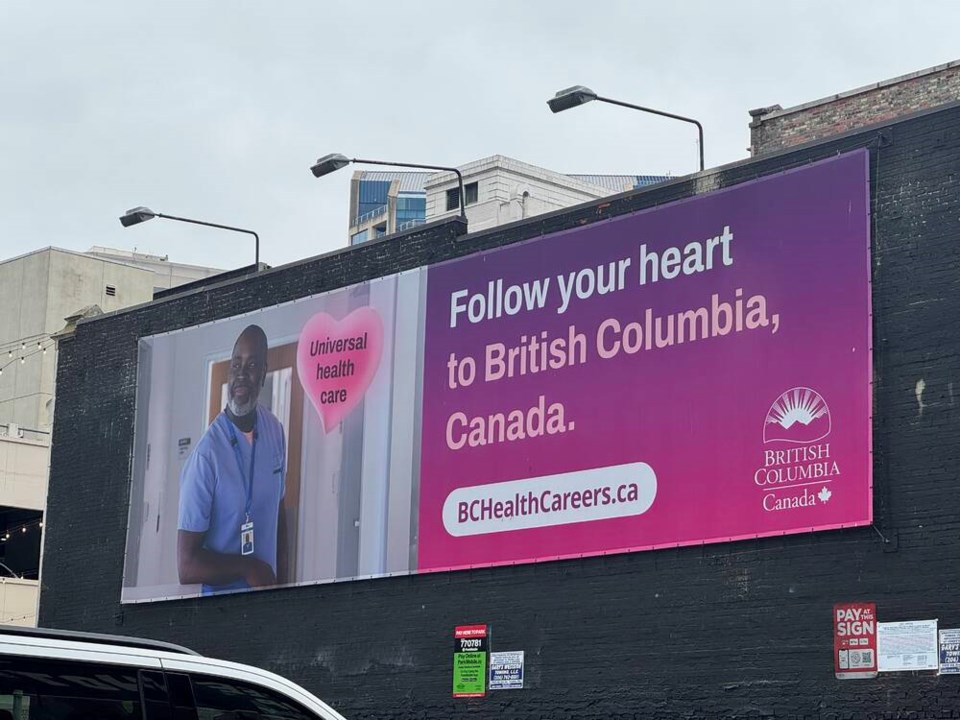A commentary by the medical director of rehabilitation at Island Health, who is also a clinical associate professor at the University of British Columbia.
British Columbia has a golden opportunity: highly qualified physicians from the United States are applying for jobs in our province. However, we, our administrators, are missing this window due to systemic inefficiencies and refusals to collaborate that discourage rather than welcome new doctors.
Unlike other nations that actively recruit through streamlined, co-ordinated systems, Canada lacks a true “headhunter” mentality. In B.C., the process is especially fragmented.
To take a job at a health authority or within a community, a physician must navigate a patchwork of disconnected agencies. None of these entities work together effectively, and no one is assigned to guide physicians through the process.
I have had to refer several excellent U.S.-trained physicians to Alberta and Ontario simply because B.C. would not recognize their American licences.
It was a tragic loss of talent during a time of growing need. For years, B.C. was effectively closed for business — but it has finally reopened.
I must applaud the College of Physicians and Surgeons of British Columbia, which has made significant and commendable strides in adapting licensing requirements, and I’ve witnessed how quickly it has acted.
However, the college is funded by physician dues, and has no influence over immigration visas, billing number assignments and the confusing B.C. MSP system. Similarly, the health authorities may offer positions, but due to the new hiring freeze, they cannot hire the administrative staff needed to staff hospital clinics with extra physicians, and they have no influence on licensing, credentialling and billing number activation — further stalling the process for new physicians.
In B.C., due to regulatory rules, doctors from outside the province are not allowed to spend time observing hospitals or clinics without obtaining a B.C. licence. Again, the only jurisdiction in North America, likely with this ruling. You cannot see where you might work.
Many critical barriers remain.
In my field, we have a 5,000-patient waitlist for a diagnostic service called electrodiagnostic testing on the Island.
B.C. is the only province in Canada that requires a specific national exam before a physician can perform this procedure. That exam is held only once per year, with the next one due in May 2026, and many excellent Canadian and U.S. physicians cannot access it in time.
If they take a position in B.C., they would be barred from practising their subspecialty unless they pass this exam first, unlike in the U.S., where physicians are typically given two years to write it.
The test itself was not designed for this purpose, and it was B.C. physicians who chose this, namely doctors who work primarily in Vancouver and serve Vancouver.
They also prevent us from doing the tests in remote communities, even though the equipment is designed to be portable. Provinces such as Ontario and Quebec have none of these issues.
Made-in-B.C. rules block access to care. Ironically, the UBC residency program does not graduate neurologists to work in the rest of the province. They must be recruited from outside. We have no UBC neurology residency graduates on Vancouver Island offering electrodiagnosis.
From the doctors creating testing rules, to the ministry employees, no one is at fault; they simply must put patients and physicians first by working together to acknowledge that it is their responsibility to recruit physicians for patient care.
What must we do to fix it?
I strongly urge the provincial government to create a centralized division of recruitment and retention. This division could operate at minimal cost and provide maximum impact.
Every international (and interprovincial) applicant to B.C. could be assigned a recruitment navigator — a dedicated staff member who would co-ordinate communications across regulatory bodies, health authorities, immigration, billing, and credentialling agencies. This would eliminate months of waiting and confusion.
What takes five to 15 weeks to get an answer from one of up to eight organizations could be done by one person. When I reached the diagnostic accreditation program in the past, I explained the absolute monstrosity of the application, four to 10 months.
They conducted a thorough investigation and found that four or five agencies in the provincial government lacked coordination and agreed it was nearly impossible to get an electrodiagnosis licence without a petition.
They quickly acted to improve the process. Change is possible.
>>> To comment on this article, write a letter to the editor: [email protected]



